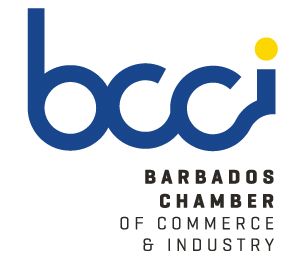Reacting to the Estimates of Expenditures as presented by the Minister of Finance Hon. Christopher Sinckler the Barbados Chamber of Commerce and Industry (BCCI) observes that “the progress made in 2013 with decreasing the deficit seems to have been stymied by proposed increased spending which will not allow the country to get to the safer 3% originally estimated for the 2016/2017 fiscal year. This is concerning at a time when Caribbean economies with a few exceptions are making significant strides in deficit shrinkage”.
BCCI posits “As business people we look to the government to be the business facilitator, so as to make the environment ripe for investing or at a minimum, provide some stability that ensures operating entities do not make a loss.” It remains apparent that the government still intends to spend more than it did in the previous year without a corresponding increase in real revenue.
That being said, the low and middle income earners, continue to be heavily taxed without appreciable relief through reductions in land tax and pensions relief etc. Against the backdrop of low interest returns in the retail banking sector, the BCCI expects that consumer spending power within these classes, with inflation and taxation, will be further diminished. Further, as Corporate Entities then have diminishing revenue and earnings , it then suggests that at a minimum some of the measures applied last year should have been dialed back, if only to keep the businesses still in operation in existence. Specifically then considering the aforementioned, the BCCI maintains that these estimates suggest an increase in taxation receipts from goods and services by $122 million BBD which, with consumer spending anticipated to be depressed will be difficult to attain.
The BCCI looks forward to an improvement in the stability in the economy and investing climate, a healthy and educated workforce, with continuous investment thereby spurring consumer spending and a stable social climate prefaced by low crime, improving or stable access to health care and education.
On paper, therefore, the focus on increases in Government Revenue through taxation, an increase over actual revenue for the same period in 2015-2016 of $224.4 million BBD versus a corresponding decrease in non-tax revenue of $42.4 million BBD represents some increased difficulty to the population of Barbados and by extension the business community. This when taken in light of increased government budgeted expenditure of $41 million BBD over the same period can easily be challenged on the increased difficulty the population will face as per earlier comments.
In this vein then, The Council reiterates the call for decreased taxation and measures which spur productivity and incremental growth in a sustainable manner and would ultimately lead to the sustained reduction in the fiscal deficit which allows the government some breathing space to focus on development activities required to facilitate further investment. The budgeted fiscal deficit of $1.609 billion BBD for 2016-2017 versus $1.778 billion for the corresponding fiscal period suggests that steps are being taken to lower the deficit, but this reduction in deficit is due mainly by increased taxation. Are these steps therefore sufficient in these times when Barbados is yet to show true growth rates in line with the CARICOM region?
The BCCI supports the Minister of Finance’s assertion that the Private Sector must lead the return of the economy back to growth but contends that this cannot be from the outside as these estimates indicate. Rather the private sector must be treated as a key stakeholder at the table so as to participate in the planning required by central Government, to create the requisite investment climate as well as ensure equal sharing of the sacrifice required to return Barbados to the 2.0% annual growth in GDP targeted by the Government. The Council of the Chamber maintains that it is committed to working with the government to find more creative avenues to spur the business climate whether through Joint Ventures, Public Private Partnerships or even well-structured BOLT agreements.










